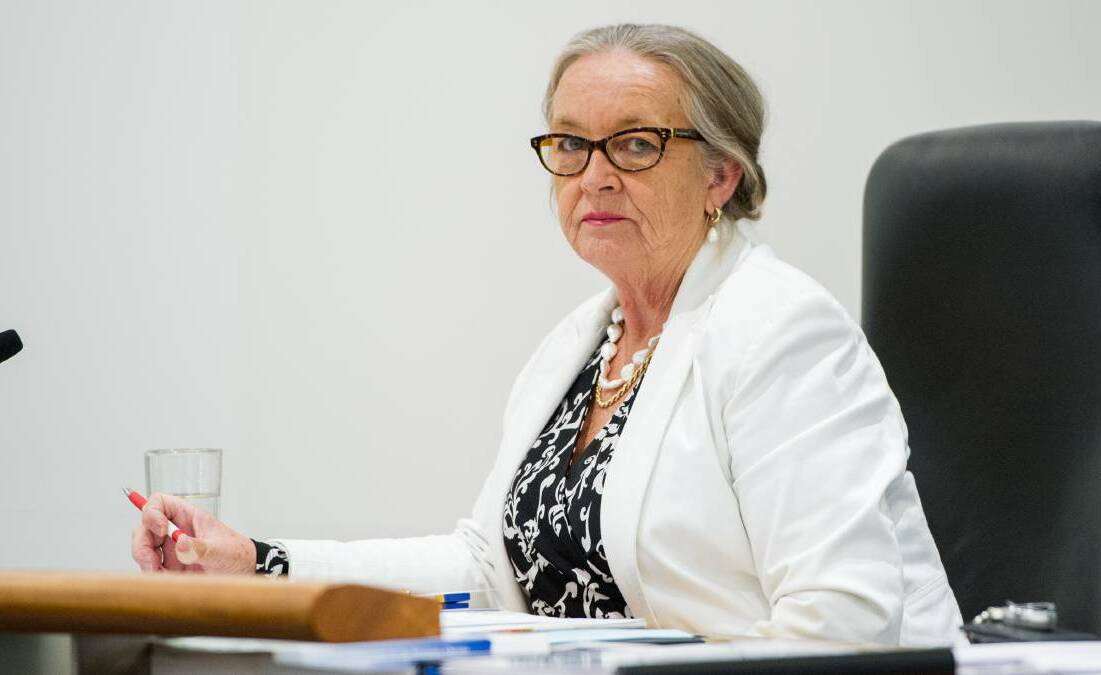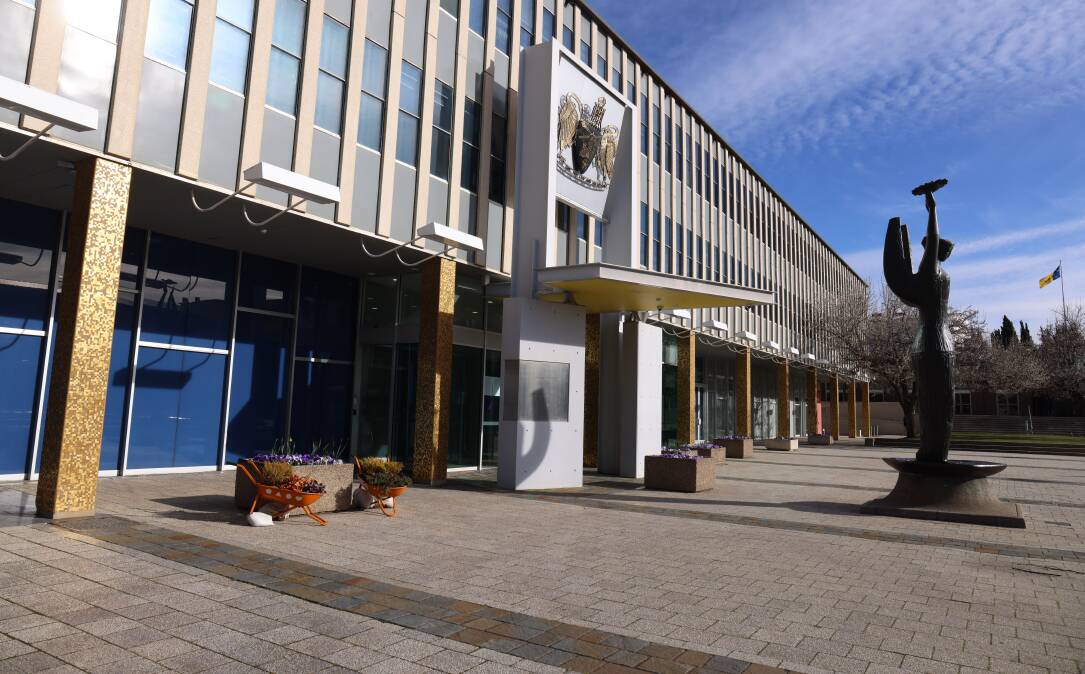A stop-work notice given to the Legislative Assembly was not legally valid as WorkSafe ACT does not have jurisdictional power over the territory's parliament, a top Australian barrister has concluded.
Committee hearings at the Assembly came to a halt in August after the workplace safety watchdog issued a prohibition notice over COVID safety precautions.
The notice sparked a constitutional stand-off, with Speaker Joy Burch saying the notice cut across the separation of powers and it was a matter of "deep constitutional significance".
Lawyers have agreed with this assessment in legal advice provided to Ms Burch.
The advice, outlined in a submission to the parliamentary inquiry investigating the issuing of the notice, concluded that WorkSafe inspectors did not have the power under the Work Health and Safety Act to issue the prohibition notice.
Lawyers said the watchdog has the power to issue prohibition notices to prevent "workplaces" from carrying out certain "activities".
They argued the Legislative Assembly did not fall under the definition of a "workplace" under the Work Health and Safety Act and treating it as such would overlook the constitutional significance of the parliament.
"The Assembly is a constitutional institution responsible for making laws for the peace, order and good government of the territory and for holding the territory executive to account," the advice said.
"If the Assembly had intended that it would be treated as a workplace in the same way as any other workplace that exists within the territory, it is likely that intention would have been made more clear in the legislation."
But Chief Minister Andrew Barr has indicated work is underway to clarify possible changes to this.
"The ACT government believes all workplaces should be safe workplaces," he said.
"Where anyone raises ambiguity regarding the application of the act, the government will act as necessary to ensure the law is clear and workers are protected."
The legal advice was provided by barristers Bret Walker and Jackson Wherrett. The former oversaw a special commission of an inquiry into the Ruby Princess cruise ship COVID outbreak and successfully acted in a High Court appeal for Cardinal George Pell.
Ms Burch sought the legal advice after threatening to take the matter to the Supreme Court.
An ACT Legislative Assembly select committee is investigating whether the issuing of the notice amounted to a possible contempt of the Assembly.
Mr Walker and Mr Wherrett said it was a matter for the committee to decide whether the issuing of the notice constituted a breach of parliamentary privilege.
The parliamentary inquiry has been urged to consider whether a stop work notice by WorkSafe ACT was illegal by the acting clerk of the Legislative Assembly in a submission to the inquiry.
The watchdog issued the notice after inspectors were unable to find any evidence of a COVID-safety risk assessment for budget estimates. This was despite the fact the Assembly has had a COVID-safe plan in place for more than two years.
The WorkSafe inspection was sparked following a debate between Workplace Safety Minister Mick Gentleman and the select committee on estimates over whether officials were able to attend hearings remotely.
The committee wanted ministers and key officials to attend in person.
A staffer from Mr Gentleman's office sought advice from WorkSafe over this arrangement and inspectors attended the Assembly the following day.
The estimates committee has accused Mr Gentleman of using his power to "influence, suggest or pressure" the watchdog to issue the notice. Mr Gentleman has strongly denied this.
Public hearings for the select committee on privileges will be held on October 24 and October 25.
We've made it a whole lot easier for you to have your say. Our new comment platform requires only one log-in to access articles and to join the discussion on The Canberra Times website. Find out how to register so you can enjoy civil, friendly and engaging discussions. See our moderation policy here.









